What do you do when you’re in a neighborhood where nearly every house has a garage but you’re selling a house without a garage?
Without a doubt, a garage is a feature that many prospective home buyers want, but not having one doesn’t mean your sale will fail. With some ingenuity and the correct approach, you can make your house stand out from the competition by highlighting its many other appealing features, which more than compensate for its lack of traditional storage space or a dedicated parking space.
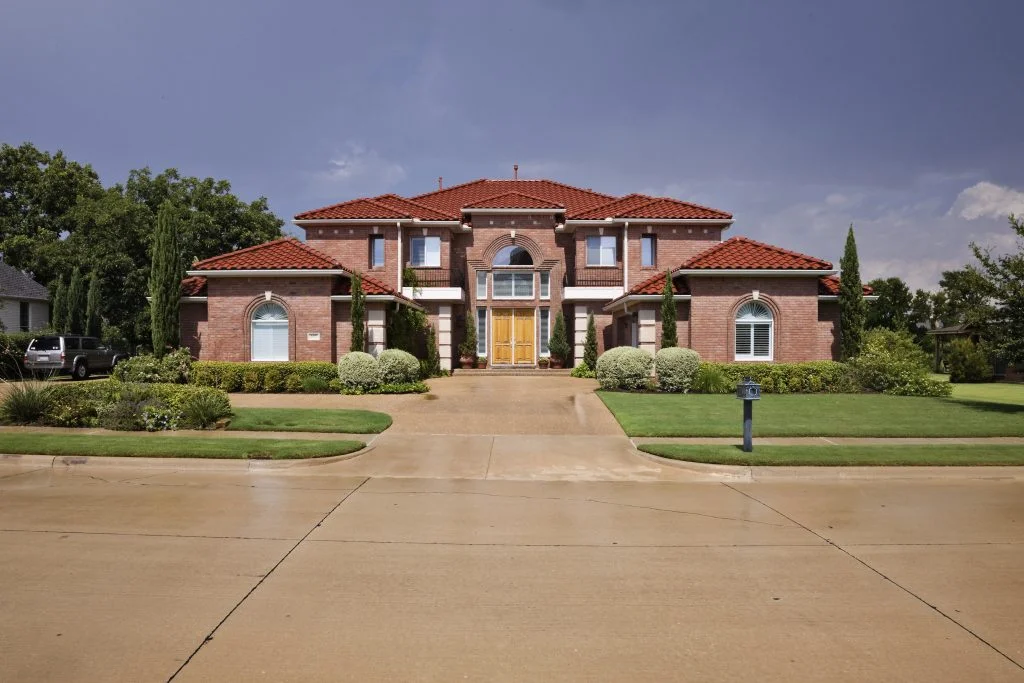
Understand Buyer Concerns When Selling a House Without a Garage
From parking their cars to having extra room for tools, hobbies, or additional living space, a garage is a must-have for most homebuyers. Before you can come up with a sales strategy, you need to identify and understand these concerns.
If you are going to be competing with other sellers in the market without a garage, you have to make greater efforts to attract potential buyers. This could mean coming up with creative ways to market your home, bringing attention to any cool design features, and improving other outdoor areas.
How Does Not Having a Garage Affect the Sale Price of a House?
When you’re selling a house without a garage, it’s going to have an impact on the asking price. However, there are several other factors that’ll determine how much of an impact it’ll have. These factors include things like location dependency, alternative parking solutions, additional storage solutions, market conditions, and the type of buyer you’re hoping to attract.
Location Dependency
Location has a big impact on the sale price. Not having a garage might not make a big difference in the value of a home in cities where parking is hard to come by and public transportation is popular. For example, it is rare to find off-street parking in densely-populated cities like New York or San Francisco. Additionally, the focus on public transportation lessens the need for private vehicle storage, which lessens the influence on property value.
On the other hand, in suburban or rural areas with less access to public transportation and more reliance on one’s own vehicle, a garage may be an essential amenity for prospective homeowners. This is reflected in Zillow’s Consumer Housing Trend Report for 2023, which revealed that 71% of prospective home buyers felt that a garage or off-street parking was extremely important.
Alternative Parking Solutions
1. Car Ports
One way to lessen the negative effect on a home’s sale price is to provide alternate parking options. One way to strike a balance would be to use a carport or a specific off-street parking area. Carports can provide protection for cars and are seen as a valuable asset by potential buyers, even though they’re not completely enclosed like garages.
Depending on the size and materials, adding a carport to a house without a garage could cost anywhere from $2,000 to $21,000 (the average price range is $2,114 to $5,090), but it can make a big difference in the property’s appearance and help make up for the lower sale price.
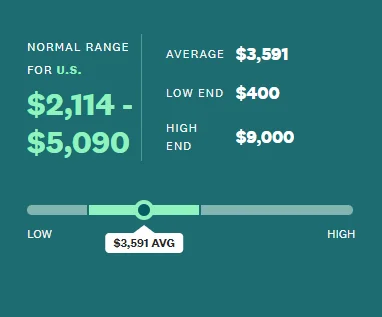 |
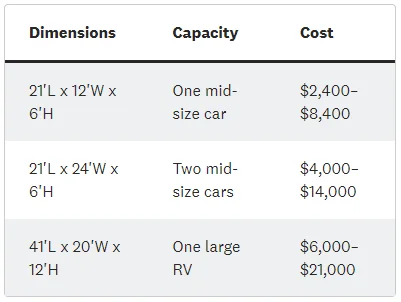 |
Credit: Angi
Some considerations and benefits of building a carport include:
- Cost-Effectiveness: Building a carport is generally less expensive than constructing a garage. This makes it an accessible option for homeowners looking to add value to their property without a significant investment.
- Versatility: Carports can be designed to match your home’s aesthetic, whether you’re looking for a simple, modern structure or something more traditional. Materials can range from wood and metal to polycarbonate, each offering different looks and levels of durability.
- Permitting and Construction: In many cases, erecting a carport requires fewer bureaucratic hurdles than building a garage. However, it’s crucial to check with your local zoning board and building departments regarding zoning laws and regulations.
- Customization Options: Carports can be customized to fit the space you have available. Whether you need a single-car space or something larger, there’s flexibility in design to meet your needs. If you live in an HOA, be sure to read the by-laws and check for aesthetic requirements.
2. Driveway Enhancements
A well-maintained and aesthetically pleasing driveway, if there is one, can also compensate for the lack of a garage. Consider these enhancements:
- Paving and Surfacing: Upgrading your driveway with high-quality materials such as pavers, concrete, or asphalt can improve the overall look of your property and provide a durable parking solution.
- Lighting: Installing good-quality, attractive lighting along the driveway not only enhances safety and accessibility but also adds to the curb appeal of your home in the evenings. Also, if you use energy efficient light bulbs, you can also use that as a selling point!
- Landscaping: Strategic landscaping can frame your driveway attractively, making the approach to your home inviting. Consider border plants, shrubs, or a row of trees that don’t obstruct the space but enhance the visual appeal.
3. Parking Pads and Gravel Areas
For homes with limited space or on a tight budget, creating a designated parking pad can be a practical solution. Gravel areas, in particular, offer a permeable option that reduces runoff and can blend seamlessly into the landscape. Here are some points to consider:
- Easy Installation: Parking pads can be created with minimal disruption to your property and can often be completed in a short time frame.
- Cost-Effective: Using gravel or similar materials for a parking pad is one of the most cost-effective parking solutions. It requires less maintenance than paved surfaces and can be easily refreshed as needed.
- Eco-Friendly Options: Permeable pavers and grass reinforcement meshes are eco-friendly alternatives that allow water to permeate the ground while providing a stable surface for vehicles.
Additional Storage Solutions
Additionally, homebuyers who value unique outdoor amenities or creative storage solutions more than a standard garage may be interested in other properties that meet their needs. For example, if you have a shed or workshop that’s both functional and looks good, your home may be appealing to those who simply need extra storage or a place where they can focus on their hobbies.
If you’re considering adding a shed or a workshop, you can spend anywhere between $350 for a simple DIY shed kit and up to $40,000 if you opt for a fully customized shed. However, average homeowners can expect to spend between $600 to $3,500.
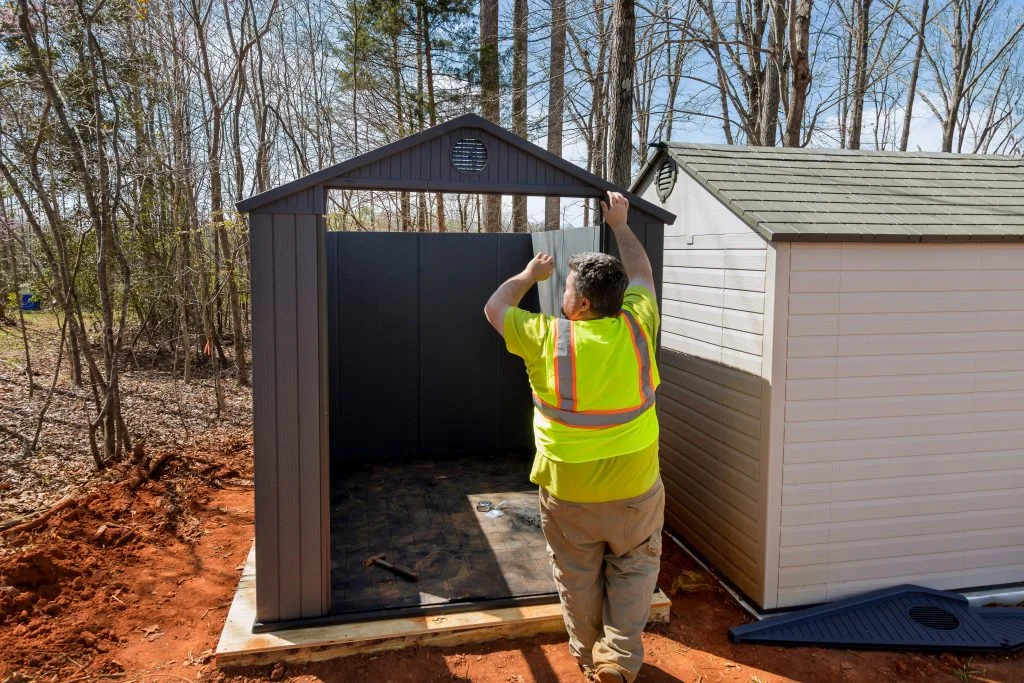
How to Prepare to Sell Your Home without a Garage
Before putting your house on the market, there are several things you’ll need to take care of first. Although your real estate agent will have some advice on how to get your home ready to go on the market, here are a few things you can focus on in the meantime.
1. Enhancing Curb Appeal
First impressions matter immensely. Enhancing your home’s curb appeal can significantly offset the absence of a garage. Consider landscaping improvements, a fresh coat of paint, and ensuring the exterior is well-maintained and inviting.
Also, you’ll want to address any minor repairs, such as changing broken light fixtures, cleaning up oil stains, and removing debris like leaves and fallen tree limbs from backyard spaces.
2. Creating Functional Outdoor Spaces
If your property lacks a garage, showcasing other outdoor areas becomes crucial. You might consider setting up a cozy outdoor living area or demonstrating how a shed could serve as a bonus storage space or how it can be used as a creative space.
3. Decluttering and Interior Staging
The interior of your home should radiate comfort and space. Decluttering and staging the interior can help buyers envision living there, emphasizing the livable space over the lack of a garage.
4. Highlighting Unique Features
Does your home have unique features like an updated kitchen, a spa-like bathroom, or energy-efficient systems? Make these the focal point of your sale, drawing attention away from the missing garage.
5. Targeting the Right Audience
Your ideal buyer pool may not view a garage as essential, such as those living in crowded cities where public transportation is easily accessible or individuals who prefer minimalist living.
6. Professional Photography
Investing in professional photography can make a world of difference. A professional photographer knows how to use natural light to highlight the best features of your home.
Pricing Your Home Without a Garage
Be honest with yourself about how much worth the garage adds to the house, and change your expectations accordingly. A more flexible approach to prices can help you sell faster. Even though there isn’t a garage, you should still set a competitive price for your home.
At the end of the day, most buyers want a garage, so you’ll need to make the sale price seem like a good deal. If the potential buyer wants to build a garage (which can cost between $16,527 to $40,858), the lower price may be the thing that prompts them to submit an offer.
Along with pricing your home just right, you’ll also want to understand your local market. You’ll want to look at similar homes (both with garages and without) that were sold within the past three months and go from there. Of course, when you’re working with a real estate agent, they’ll do a comparative market analysis to make sure your property is priced fairly.
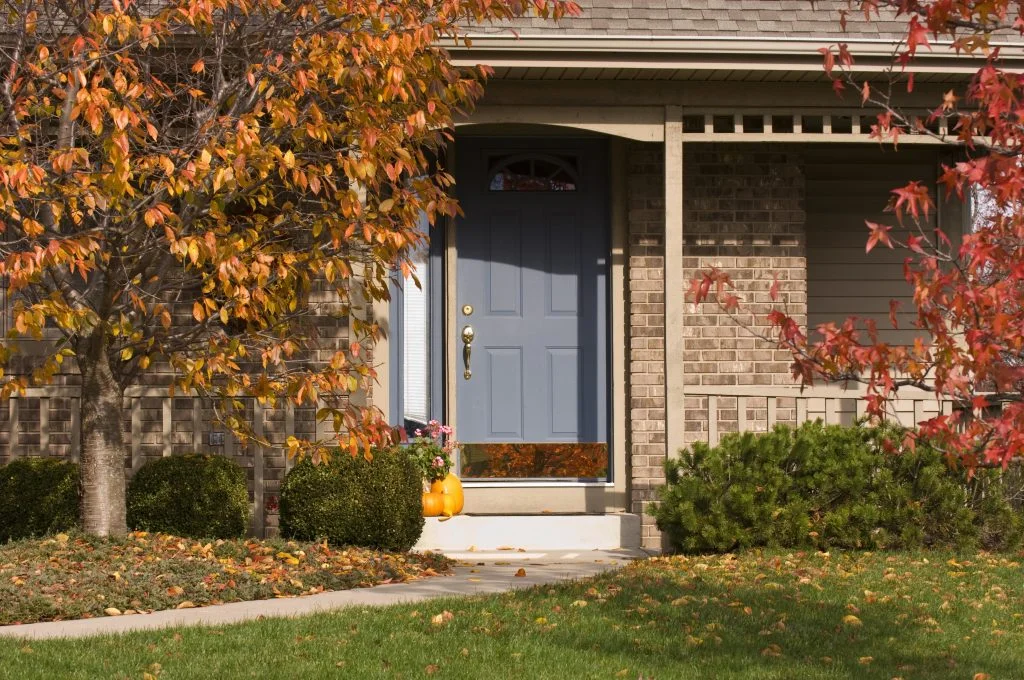
Selling a Home with a Converted Garage Space
There are special chances and difficulties when selling a home in the real estate market when the garage has been turned into extra living space. For homebuyers who value additional living space more than garage space, this makeover can be a game-changer. A well-planned garage conversion can increase the value of a property by creating a new room that is both practical and aesthetically pleasing, such as a home office, recreation room, or additional bedroom.
Selling a home like this, though, involves playing up the extra living space and calming buyers’ fears about not having a garage. Reassuring potential buyers of the conversion’s high quality, the new space’s adaptability, and any extra storage options offered (such as a shed or off-street parking) will help ease their concerns. What may appear to be a negative at first glance can actually be a strong selling factor if the property is marketed to potential buyers who are more interested in extra living space than a garage.
Consider Selling to a Real Estate Investor or Cash Buyer
Even if investors want to buy houses at a price that will make a profit when they sell or rent them out, sellers can still come out ahead financially in the long run. For example, if the seller sells the property “as is” to an investor, they won’t have to spend money fixing it up or making improvements (such as building a garage or carport) to attract prospective buyers. Not only that, but the seller might possibly save a ton of money thanks to the shortened closing period because they won’t have to keep paying for utilities, taxes, and insurance.
Selling to HomeGo provides a quick, hassle-free selling experience and is a simplified and effective option for homeowners wishing to sell homes without a garage. Using HomeGo means that sellers don’t have to make any repairs or improvements, so they can skip the demands and risks of the traditional market. You can close on a deal in just a few days without having to deal with the stress of staging, showings, and negotiations. This faster process is great for people who want to wrap things up as quickly as possible.
With honest, no-obligation cash offers, homeowners can rest assured that the sale process will be easy and transparent. In addition, HomeGo stands out since it pays for all closing fees. This takes a lot of stress off sellers’ shoulders and makes HomeGo a more financially advantageous option for anyone seeking a smooth and fast sale
Final Thoughts About Selling a House Without a Garage
It can be hard to sell a house that doesn’t have a garage, but it’s not impossible if you know what you’re doing. You can get the right buyer for your home by knowing what they’re looking for, carefully preparing your home, using smart marketing techniques, and being open to changes during the negotiating process.
Remember that there is a buyer out there for every home, no matter what it has. The trick to selling a house with a garage is playing up it’s best features and showing potential buyers how special your home is.




